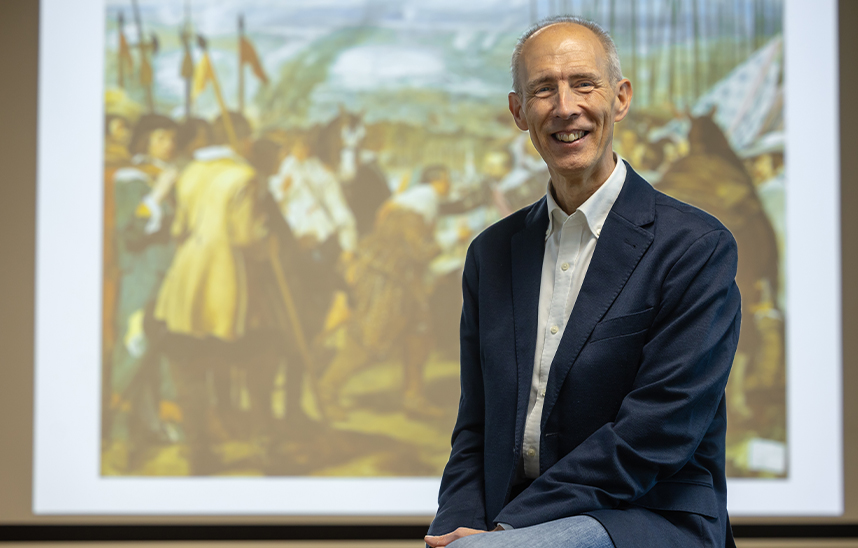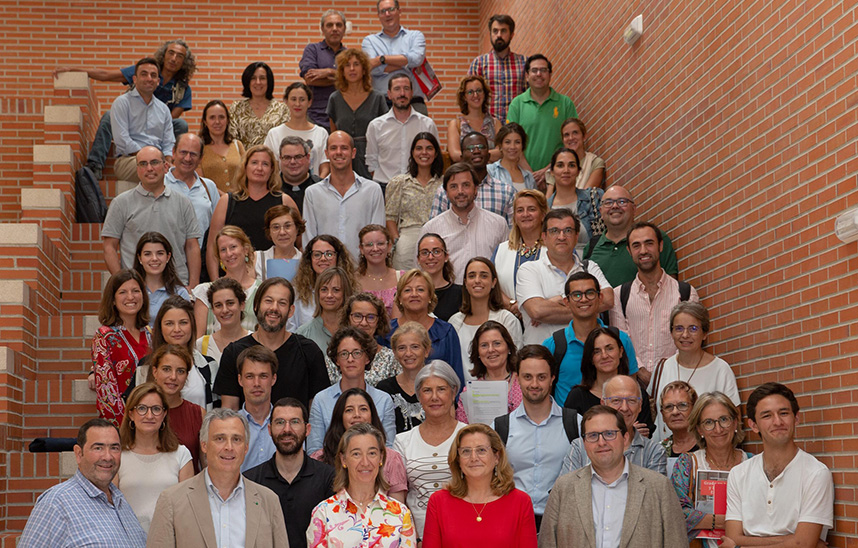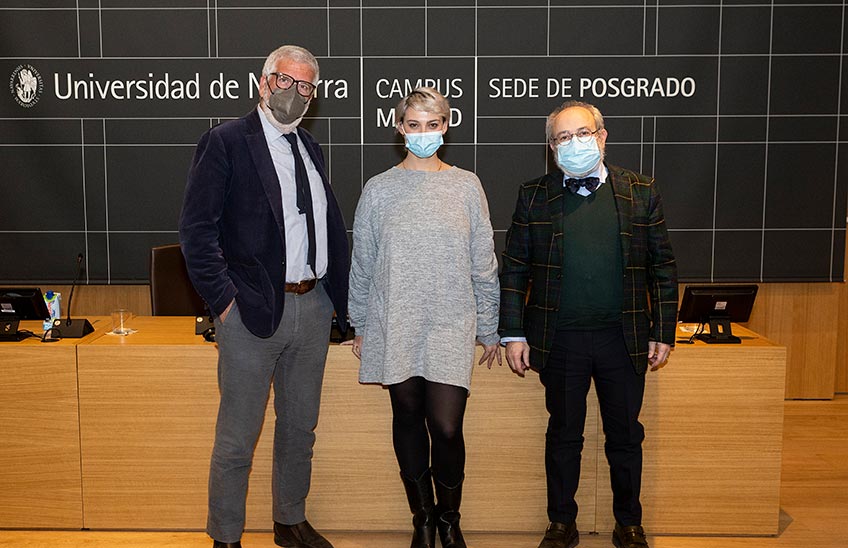"The value of Education university is proven in the lives of graduates and is manifested not only in what students gain financially but in who they become."
More than 80 people, including professors and students, attended the IX Lecture "The aims of the Education".
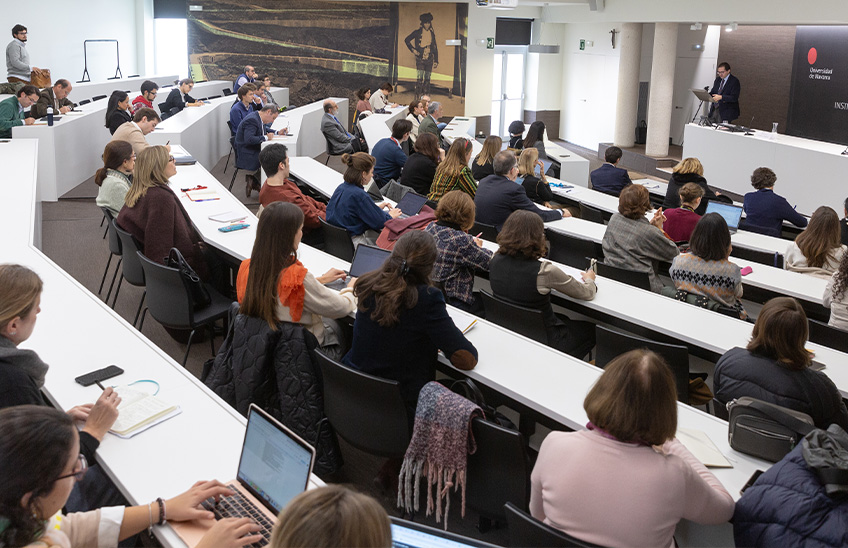
"Are we teachers prepared to fulfill the task of forming people? The academic degree program prepares the professor to research and give classes, but not to educate students". With this question, Professor José María Torralba introduced the thesis of the IX Lesson "The aims of the Education", under the degree scroll "Growing up in the University: from professional qualification to the cultivation of character", which took place last Thursday, November 9.
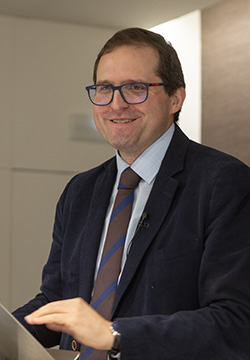 The Full Professor of Philosophy Moral and Politics began by explaining how the university teaching and the mission statement of forming people requires an implication staff on the part of the professor to transmit knowledge. For him, it is not a question of changing the university system, but rather that the preparation for a profession helps the student to grow as a person. In final, it is a matter of "creating a context educational in which the person can dream big".
The Full Professor of Philosophy Moral and Politics began by explaining how the university teaching and the mission statement of forming people requires an implication staff on the part of the professor to transmit knowledge. For him, it is not a question of changing the university system, but rather that the preparation for a profession helps the student to grow as a person. In final, it is a matter of "creating a context educational in which the person can dream big".
The goal of the university is to train people not only according to what the market dictates, but of agreement with the ethical and human needs of society. "Sometimes it is we professors who are not convinced of this that students see so clearly," he added. "The value of the Education university is proven in the lives of the graduates and is manifested not only in what students get financially but in who they become."
With this context, Torralba gave the lesson to deepen the meaning of the profession and the need to awaken a vocation in students, which is the most important thing to transmit the passion for what is learned. "To be a good professional requires not only technical but also moral and intellectual competencies. If we are here to prepare professionals we must try to transmit and help awaken a vocation in them, like mission statement in the world."
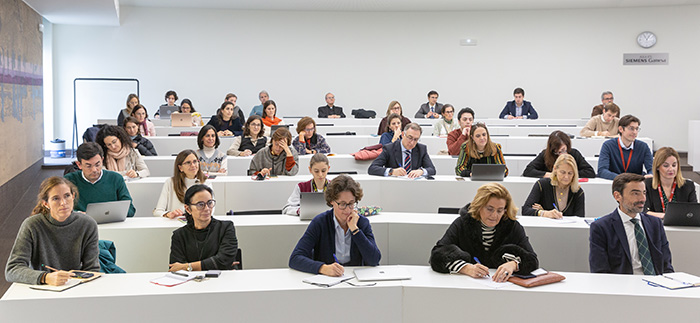
Quoting Karen Bohlin, he also referred to how teachers are not responsible for what subject of people their students become, "but we are able to cultivate their moral imagination". Imagination is decisive because it allows us to conceive of other possible worlds. It is, at final, the basis of hope. Using the example of the growing seed, the professor explained that "blossoming has to do with a heart that does not seek itself but expands in fertile soil. The Education finds its place in the joy of wonder (...) Just as grace is neither controlled nor seen, ours is to sow. The seed bears fruit when it wants to and the person blossoms when he discovers that learning is an end in itself", he concluded.
The attendees then had the opportunity to ask the professor a series of questions about the reading.
The lesson "The Ends of the Education" is an annual lecture of the Core Curriculum Institute that brings together faculty and students of the Great Books Program to talk about different aspects of the Education at the university.

